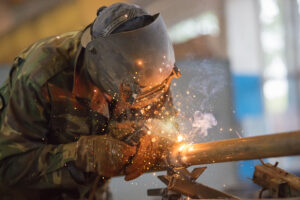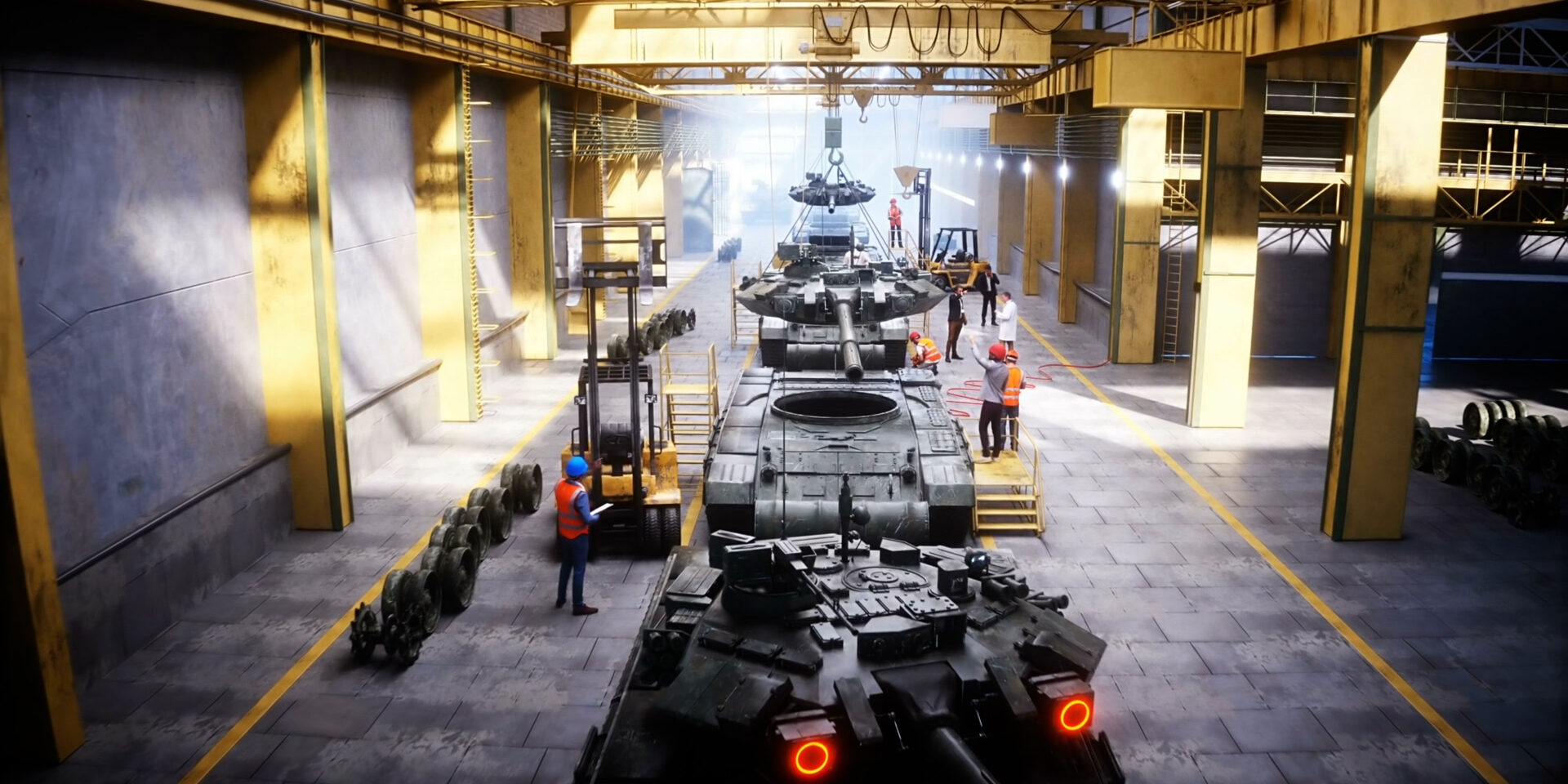At a time of growing geopolitical instability and with an unprecedented acceleration in rearmament and technological modernisation programmes, the defense and security industry is facing a challenge that is as urgent as it is structural: a shortage of skilled labor. While orders for new defense systems — ships, tanks, armoured vehicles, critical infrastructure — are multiplying, the ability to produce them on time and to the required quality standards depends on an increasingly scarce resource: technical and operational talent.
The figure of the welder, often invisible in the industrial narrative, is today becoming a key link. Welding is a critical discipline in the manufacture and maintenance of military and civilian structures, and without well-trained professionals it is not possible to sustain the production rates demanded by the current context. The problem is not only one of quantity, but also of preparation. In an industry that demands pinpoint accuracy, compliance with international quality standards and adaptation to new technologies, there is no room for improvisation.
Training as a national security strategy
In this scenario, investment in technical training is no longer just an educational or labour issue: it is a strategic imperative. Accelerating the training of welders, technicians and operators has become a priority shared by governments, companies and the armed forces. However, traditional teaching methods do not allow for the necessary speed and scalability. Training must be more efficient, safer and more attractive to new generations.
This is where new technologies applied to professional training come into play. Augmented Reality, for example, makes it possible to simulate welding processes in virtual environments that replicate real conditions without the costs, risks or limitations of physical workshops. This technology accelerates learning, improves knowledge retention and allows for objective assessment of skills.

Seabery: Spanish technology at the service of defense and industry
Welding is at the core of modern defense manufacturing. From submarines to armored vehicles, precise and high-quality welding is non-negotiable. Yet, traditional training methods are not fast or scalable enough to meet current industrial needs.
The Spanish company Seabery, a pioneer in the development of training solutions based on augmented reality, is already collaborating with strategic sectors such as the naval industry, the automotive industry and the defense industry to train the new generation of welders. Its flagship product is a welding simulator with augmented reality technology that allows apprentices to acquire practical skills in an accelerated and highly effective way.


Thanks to this methodology, professionals are being trained who are already working in the manufacture of military ships, battle tanks, specialised cars, heavy machinery and strategic infrastructures. These welders, trained with Seabery technology, are playing an active part in building the defensive capacity of countries all over the world.
At Seabery, we are working with key players in the naval, automotive, and defense industries to accelerate the training of welders through augmented reality (AR) simulation. Our technology allows trainees to improve faster, safer, and with measurable results — without needing a physical workshop.
A future in which technical talent is key
Automation and digitalisation will continue to transform industry, but the human factor will remain irreplaceable in critical operations such as welding. In this sense, training young qualified technicians is not only an investment in employability and economic development, but also in national security and industrial independence.
The road to a more robust, agile defence industry, prepared for the challenges of the future, involves recovering the prestige of technical professions, modernising professional training and integrating technologies such as augmented reality into teaching processes. Seabery has already started down that road, and the results are clear to see: a new generation of professionals trained to build tomorrow starting today.











